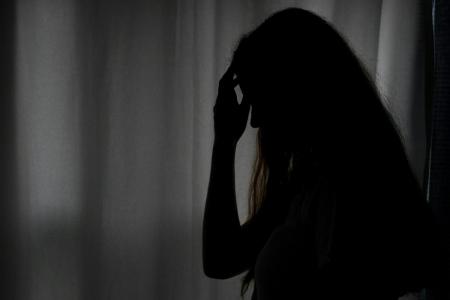Changes to support students' mental health a positive step
Parent, experts support latest moves but urge for more, such as making counselling sessions compulsory
She lost her eldest son Evan, 11, to depression in 2017.
Four years later, Madam Doreen Kho is glad to see the Ministry of Education (MOE) making further changes to address the mental well-being of students in school.
Madam Kho, 47, a founding member of youth suicide prevention advocacy group PleaseStay.Movement, and a mother of three, aged 14, 10 and eight, said she sees the changes, which include providing more counselling support for students in school, as a first step in the right direction.
"Having more teachers being trained in counselling and mental health literacy is probably the fastest solution to get the greatest reach of students, a good initial step.
"But I think we need to have a timeline to work towards providing compulsory counselling to normalise it," she said.
In a ministerial statement in Parliament on Monday on the recent death of a River Valley High School student, Education Minister Chan Chun Sing said MOE will be implementing new measures to establish a "caring and enabling" society that gives greater attention to the well-being of young people.
Apart from deploying more than 1,000 teacher-counsellors in the next few years, new measures also include providing all teachers with enhanced training on mental health literacy to strengthen their ability to identify and support students in need.
Singapore has over 700 teacher-counsellors deployed in schools, and all schools have at least one school counsellor.
Teacher-counsellors are trained in counselling skills, while school counsellors are professional counsellors with a diploma or degree in counselling.
ANNUAL SESSIONS
Madam Kho hopes that schools can implement compulsory yearly counselling sessions, similar to dental check-ups, with professional counsellors for all students.
She said: "If every child goes to see a counsellor, it also helps to remove the stigma that seeing a counsellor means you are problematic."
Dr Wong Hwei Ming, a research scientist at the Centre for Research in Pedagogy and Practice at the National Institute of Education, agreed that annual mental health "check-ups" are helpful to normalise counselling for students.
Dr Wong, who is also a part-time school counsellor, believes school counsellors, teacher-counsellors and form teachers need to work together to create a support system for students.
"Ultimately, the choice (to ask for help) is in the hands of the students, and I think what MOE is doing now is laying out possible resources for them, which is the first step," she said.
Samaritans of Singapore (SOS) chief executive Gasper Tan said having a whole of school effort in the focus of mental health can have positive returns.
MOE is also looking to resume co-curricular activities (CCAs) for secondary school and pre-university students within the next few weeks, as more students complete Covid-19 vaccination.
Mr Tan said: "(Resuming CCA) could benefit students who are feeling a sense of loneliness to break out of their isolation and seek comfort and peer support from their trusted friends, as well as give them something to look forward to."
MOE also announced the removal of some topics - know as common last topics - from national exams and reduced the scope of year-end exams, which Madam Kho sees as a relief for students as well as parents, who have taken on a bigger burden to helping their children adjust to home-based learning (HBL).
Last year, common last topics were also removed from the national exams because of the pandemic.
"Given that (students) have spent less time in school and have taken in less through HBL, this will definitely be helpful," she said.
Get The New Paper on your phone with the free TNP app. Download from the Apple App Store or Google Play Store now


